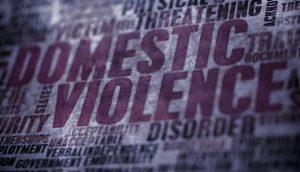If your loved one is about to be admitted to a psychiatric hospital because he or she is suicidal, this is a blog you should print out and take with you to the hospital. It could save your loved one’s life.
 When a loved one is in the hospital, we assume that the care is high quality and, most of all, safe. We feel relieved that our loved one is finally being properly protected while he or she is enduring a suicidal crisis. We expect constant and safe round-the-clock trained nurses or psychiatric techs properly watching our loved ones to make sure all is well. We expect a properly trained psychiatrist giving hospital staff proper orders to protect our loved ones. We expect hospital leadership working hard to make the hospital safe.
When a loved one is in the hospital, we assume that the care is high quality and, most of all, safe. We feel relieved that our loved one is finally being properly protected while he or she is enduring a suicidal crisis. We expect constant and safe round-the-clock trained nurses or psychiatric techs properly watching our loved ones to make sure all is well. We expect a properly trained psychiatrist giving hospital staff proper orders to protect our loved ones. We expect hospital leadership working hard to make the hospital safe.
Sadly, inpatient suicide—when a person takes his own life in a hospital or kills herself in a healthcare facility—is all too common. In fact, inpatient suicides occur six times a day every day of the year.
This is particularly egregious because the reason the patient is hospitalized is to keep the patient safe from suicide.
Sadly, unless hospitals abide by proper safety rules, the psychiatric hospital can be dangerous for suicidal patients … not as dangerous as not being hospitalized, but the hospital danger is a needless danger. The mental health literature has clearly set forth safety rules for psychiatric hospitals for over 20 years, but many hospitals are turning a blind eye to the lessons of the literature primarily because of greed. There are obvious exceptions like Johns Hopkins in Baltimore, but the exceptions are rare. The hospitals do not want to spend money on properly training staff or making sure the hospital is environmentally safe for a suicidal patient. In addition, hospitals are understaffed so that the nurses and techs cannot keep up with properly protecting their patients.
What Families Can Do to Foster Suicide Prevention Awareness
Texas suicide lawyer Skip Simpson knows how vulnerable certain patients can be during their stay in a healthcare facility due to improper suicide watch and broken safety rules. He believes it is important for families to be aware of the statistics in order to foster as much suicide prevention awareness as possible.
Suicidality is the most common reason for inpatient psychiatric hospitalization. When a patient is admitted to the hospital because of thoughts of suicide, the clinician and hospital is on notice that the patient is at an increased risk for suicidal behavior. To be extra clear, the hospital knows it is likely a suicidal patient will attempt suicide in the hospital if the patient is not properly protected.
When hospital staff members are aware of a patient’s suicidal risks, the hospital assumes the duty to take reasonable steps to prevent the patient from inflicting harm. Obviously if the hospital staff does not know the proper safety rules or does not want to spend the money to learn them, the “reasonable steps” concept is ditched and the chief executive and finance officer just hopes for the best … just rolls the dice with patient safety.
An inpatient suicide may occur under varying types of circumstances. These circumstances all relate to violations of safety rules from inadequate suicide assessment, negligent suicide watch, an unsafe environment, inadequate policies and procedures regarding dangerous contraband like shoe laces or belts (to mention only a few).
What can the loved one do when their loved one is being admitted to a hospital for protection from suicide?
1) Make sure hospital staff knows exactly what your loved one has said about suicide or what steps your loved one has taken towards ending his or her life. You can ask your loved one before getting to hospital if he or she has thought about suicide. If yes, ask how he thought about doing it. Ask what steps he or she has taken, like buying a gun, getting a rope, hoarding pills, thinking of jumping from a bridge, or jumping in front of a car.
Make sure the hospital staff knows the answers to these questions. Why? Because you cannot be sure hospital staff will ask them!
Make sure you see staff document what you say.
2) Ask who will be assessing your loved one for suicide and what their qualifications are to do so. Don’t be embarrassed to be proactive. Be nice but be firm. You want your loved one protected…the more you are showing your concern the more concern your loved one will receive hopefully.
3) Tell the staff you want to be a part of the treatment team. If there is a decision about your loved one’s care you want to be a part of that decision.
4) Encourage your loved one to sign a waiver of confidentiality so you can be kept informed by the staff of what your loved one is saying about suicide. Patients often demand to be released and claim they are not suicidal so they can get out of the hospital…frequently so they can attempt suicide. Pressing for discharge can be a risk factor for suicide.
5) Tell staff you want to know what was learned in the suicide risk assessment. You may be able to shed light on what your loved one is telling the psychiatrist or nurse. There are many reasons why your loved one may not “tell all” and your knowledge can make a big difference.
6) Determine how often the psychiatrist will visit with your loved one in the hospital. Tell the psychiatrist you would like a brief call updating you on your loved one’s condition and the plans for your loved one.
7) Determine what level of observation your loved one will be on. In other words, will he or she be watched constantly? If not, how often? If you are told your loved one will be watched every 15 minutes, remind the staff that if your loved one attempts suicide by hanging, it only takes 2-3 minutes to have irreversible brain damage and 6-7 minutes to be dead. Then ask, “How 15 minutes is protective?” Again, be firm and be an advocate for your loved one. The hospital patient’s advocate is employed by the hospital. You are the only true advocate for your loved one.
8) Ask if there is a bathroom door inside the patient’s room. If so this is where patients hang themselves using a sheet or clothing to hang over the door wrapped as a noose.
9) Ask how often your loved one will be properly assessed for suicidal thinking.
10) Ask how the staff monitors for behavioral signs and symptoms of suicide.
11) If the staff or psychiatrist wants to relax suicide precautions to less than constant tell the staff you want to be notified to discuss this with staff. You will want to know if there has been significant, stable, and reliable change in your loved one to warrant a step down in protection. Remind the staff that hanging is the number one way patients die by suicide in a hospital. Remind staff that ordinarily this is done in the privacy of the patient’s room or bathroom.
12) If a staff member acts rude with you or to your loved one, insist to see the staff member’s supervisor and explain you concern. Suboptimal staff-patient relationships are a risk factor for suicide. You want your loved one to have hope and not to feel like he is a burden or no one cares.
13) When it comes time for discharge from the hospital, again make sure you are part of the discharge process. If you don’t feel like your loved one is ready for discharge say so and tell staff why. Again, make sure you see staff document your disapproval in the chart.
If staff insists on discharging your loved one ask to speak to the CEO of the hospital. If all else fails, call 911 and report that your loved one who you believe is still suicidal is being discharged from a psychiatric unit.
14) If you feel your loved one is safe for discharge make sure your loved one’s transition to outpatient care is smooth and immediate. Why? Post discharge of psychiatric patients admitted to a hospital for suicidal protection, is a very dangerous high risk time for a suicide attempt.
15) Very important: Make sure all guns are removed from your home, your car (check carefully under the seats, glove compartment, trunk… think like a police officer who is checking for drugs), your relatives and friends homes and cars, and anywhere in sheds or other hiding places around the home or apartment. Skip Simpson, in making this list, has handled cases where guns were hidden and used post discharge.
16) Ask hospital staff how many suicides have occurred in the hospital in the last 5 years. Get an answer from someone.
17) Ask staff what they do to ensure the hospital is safe for your loved one. Do they have suicide prevention committee meetings? Do they utilize a Failure Mode and Effect Analysis? This analysis thinks of ways that patients could suicide in a hospital and fixes what needs to be fixed before a suicide occurs.
Patients, Families Suffer When Safety Rules Are Ignored by Hospitals
The hospital has lots of patients. You have one loved one who needs protecting. Make sure your loved one is on the top of the hospital’s list to protect.
The suicide prevention literature makes the who, what, where, why and how of inpatient suicide very clear. There is no guess work in making psychiatric hospitals safe. When the safety rules are not followed, only the patients and their loved ones suffer the consequences. Not the financial statement of the hospitals or the hospital leaders.
If you lost a loved one due to inpatient suicide, you may be able to pursue insufficient suicide watch compensation or recover damages for suicide in a hospital. For a free and confidential consultation, contact a tough yet understanding lawyer who can help you seek the justice you deserve. Contact Skip Simpson Attorneys and Counselors by calling 214-618-8222 or completing online contact form.
 Virginia governor Terry McAuliffe’s plan to close Catawba Hospital, a 110-bed psychiatric facility located near Roanoke, is the latest blow to the state’s underfunded and uncoordinated mental health system.
Virginia governor Terry McAuliffe’s plan to close Catawba Hospital, a 110-bed psychiatric facility located near Roanoke, is the latest blow to the state’s underfunded and uncoordinated mental health system.



 In 2013, there was a significant increase in the number of young people who used a firearm to die by suicide. Most of the instances in which a young person died by suicide using a gun involved a family member’s firearm.
In 2013, there was a significant increase in the number of young people who used a firearm to die by suicide. Most of the instances in which a young person died by suicide using a gun involved a family member’s firearm. Nearly everyone has heard about the importance of talking about your problems and not keeping feelings bottled up. A
Nearly everyone has heard about the importance of talking about your problems and not keeping feelings bottled up. A  When a person is incarcerated, he or she is still entitled to receive necessary medical care for health conditions. This includes not just physical symptoms but also mental problems that may be causing someone to have thoughts of suicide or to consider dying by suicide. Unfortunately, a recent article on
When a person is incarcerated, he or she is still entitled to receive necessary medical care for health conditions. This includes not just physical symptoms but also mental problems that may be causing someone to have thoughts of suicide or to consider dying by suicide. Unfortunately, a recent article on  There are many risk factors for suicide and both individuals and mental health professionals need to be aware of some of the likely reasons why people will consider death by suicide. One factor that can play a role in increasing the risk of suicide is domestic violence.
There are many risk factors for suicide and both individuals and mental health professionals need to be aware of some of the likely reasons why people will consider death by suicide. One factor that can play a role in increasing the risk of suicide is domestic violence. Many different risk factors can increase the likelihood of a young person having suicidal thoughts or attempting to die by suicide. While most parents and counselors are familiar with the potential impact that bullying and depression can have on the likelihood of a teen attempting death by suicide, there is also another danger that may not be so apparent. Emerging research indicates that a teenager who has suffered a traumatic brain injury (TBI) may have a greater risk of taking his or her own life.
Many different risk factors can increase the likelihood of a young person having suicidal thoughts or attempting to die by suicide. While most parents and counselors are familiar with the potential impact that bullying and depression can have on the likelihood of a teen attempting death by suicide, there is also another danger that may not be so apparent. Emerging research indicates that a teenager who has suffered a traumatic brain injury (TBI) may have a greater risk of taking his or her own life. When a loved one is in the hospital, we assume that the care is high quality and, most of all, safe. We feel relieved that our loved one is finally being properly protected while he or she is enduring a suicidal crisis. We expect constant and safe round-the-clock trained nurses or psychiatric techs properly watching our loved ones to make sure all is well. We expect a properly trained psychiatrist giving hospital staff proper orders to protect our loved ones. We expect hospital leadership working hard to make the hospital safe.
When a loved one is in the hospital, we assume that the care is high quality and, most of all, safe. We feel relieved that our loved one is finally being properly protected while he or she is enduring a suicidal crisis. We expect constant and safe round-the-clock trained nurses or psychiatric techs properly watching our loved ones to make sure all is well. We expect a properly trained psychiatrist giving hospital staff proper orders to protect our loved ones. We expect hospital leadership working hard to make the hospital safe. How many times, when you were extremely anxious, depressed, overwhelmed, and
How many times, when you were extremely anxious, depressed, overwhelmed, and  The link between bullying and suicidal thoughts among teenagers has long been established, with early medical journals dating back as far as 1910 addressing the impact of harassment or teasing behavior on suicidal ideation.
The link between bullying and suicidal thoughts among teenagers has long been established, with early medical journals dating back as far as 1910 addressing the impact of harassment or teasing behavior on suicidal ideation.
